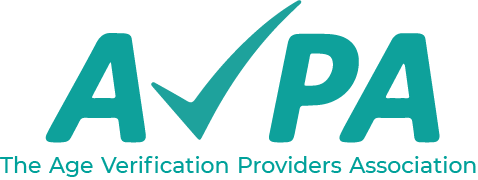With some 144 bills in across 43 US States introduced in 2023 which specifically attempt to protect children from various harms on the Internet, keeping track of what is required where is already a huge challenge for many online services. Even where Bills are copied from other states, there are subtle differences in the age verification requirements.
In this post, we will seek to track what is coming into force when. We are only listing laws that have been enacted with firm implementation deadlines. Please note this post is intended to be informative, but should not be relied on as legal advice, nor assumed to be comprehensive. Services should be vigilant and keep up-to-date with the legal requirements applicable in the jurisdictions where they are available.
January 1 2023
Louisiana HB 142 Makes commercial websites where more than one-third of their content is pornographic liable to being sued for damages by individuals unless age verification using (1) digital ID card or (2) government-issued ID or (2) a commercial reasonable method based on transaction data (e.g. mortgage, education, employment)
May 2, 2023
Utah SB 287 Makes commercial websites where more than one-third of their content is pornographic liable to being sued for damages by individuals unless age verification using (1) government-issued ID or (2) a commercial reasonable method based on transaction data (e.g. mortgage, education, employment)
June 8 2023
Louisiana HB 77 Gives commercial websites where more than one-third of thjeir content is pornographic 30 days to remedy a failure to provide age verification before the Attorney-General can take legal action to impose a fine of $5k per day or $10k if done knowingly (the “PAVE Act”)
July 1, 2023
Mississippi SB 2346 Makes commercial websites where more than one-third of their content is pornographic liable to being sued for damages by individuals unless age verification using (1) state-approved digital ID, (2) independent, third-party age verification services checking authoritative databases or (3) a commercial reasonable method based on transaction data (e.g. mortgage, education, employment)
Virginia SB 1515 Makes commercial websites where more than one-third of their content is pornographic liable to being sued for damages by individuals unless age verification using (1) commercially available database or (2) a commercial reasonable method of age and identity verification
July 31, 2023
Arkansas SB 66 Makes commercial websites where more than one-third of their content is pornographic liable to being sued for damages by individuals unless age verification using (1) state-approved digital ID, (2) government-issued ID or (3) a commercial reasonable method that holds identity assurance level 2 (for IAL2 definition, see NIST)
September 1 2023
Texas HB 1181 – Makes commercial websites where more than one-third of their content is pornographic liable to being sued for damages by individuals unless age verification using (1) digitized ID card (not defined), or a commercial age verification system based on (2a) government-issued ID or (2b) a commercial reasonable method based on transaction data (e.g. mortgage, education, employment), and also requires sites to publish this warning:
Arkansas SB 396 Requires parental consent before a minor can open a social media account (controlled by a company the over $100m turnover), based on age verification through (1) state-approved digital ID, (2) government-issued ID or (3) a commercial reasonable method. Social media companies may not retain personal data. Both the Attorney General, as a regulator, and private individuals can go to court to enforce this law.
January 1st 2024
Montana SB 544 Makes commercial websites where more than one-third of their content is pornographic liable to being sued for damages by individuals unless age verification using (1) digitized ID card (not defined), or a commercial age verification system based on (2a) government-issued ID or (2b) a commercial reasonable method based on transaction data (e.g. mortgage, education, employment)
March 1 2024
Utah SB 152 Requires parental consent to open a social media account, and gives parents access to a child’s account, and that the Department of Consumer Protection establishes “acceptable forms or methods of identification, which may not be limited to a valid identification card issued by a government entity.,”
July 1 2024
California AB 2273 The California Age Appropriate Design Code Act is a wide-ranging Bill requiring websites likely to be accessed by children to create a timed plan to mitigate or eliminate the risk before the online service, product, or feature is accessed by children.
September 1 2024
Texas HB 18 Requires digital service providers to implement age verification measures if knowingly hosting “harmful” or “obscene” content. Allows parents more control over their children’s usage. A joint legislative study is required into the harms of various types of media on children.
